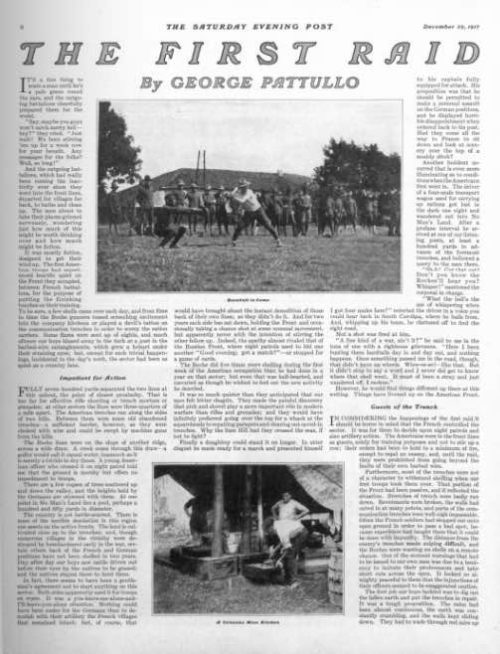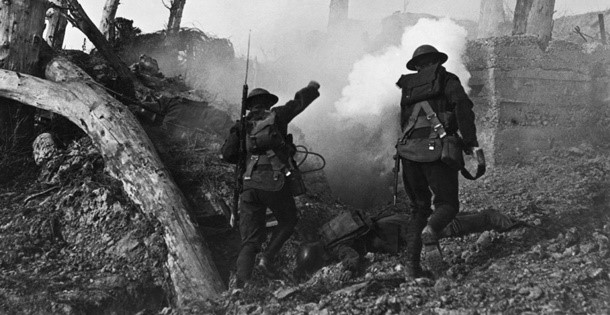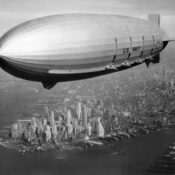 On the night of November 3, 1917, German soldiers raided a trench in the French sector of the Western Front. However, this particular section of the trenches was held by American troops. There was intense fighting as the Germans surprised the Americans. When the fight was over, the Germans took 12 American soldiers back to their lines for interrogation. They left three Americans dead. In the year and nine days that remained of the war, those first American combat deaths would be followed by another 53,000, as well as 63,000 non-combat deaths, mostly from the influenza epidemic that swept through the trenches.
On the night of November 3, 1917, German soldiers raided a trench in the French sector of the Western Front. However, this particular section of the trenches was held by American troops. There was intense fighting as the Germans surprised the Americans. When the fight was over, the Germans took 12 American soldiers back to their lines for interrogation. They left three Americans dead. In the year and nine days that remained of the war, those first American combat deaths would be followed by another 53,000, as well as 63,000 non-combat deaths, mostly from the influenza epidemic that swept through the trenches.
George Pattullo, one of The Post’s war correspondents, reported on the deaths, and their comrades’ reaction to it. His December 29, 1917 article, “The First Raid,” is a rare, full account of what happened that night in northeastern France.
Despite the American losses, Pattullo was optimistic. The doughboys had stood their ground, he reported, refused to abandon wounded comrades, and fought back fiercely. Now, American soldiers who had been homesick and bored were eager to strike back at the Germans.
He wrote, “The raid of November third, small though it was, has welded the men of the First Division as no amount of training and discipline could do. The boys who came back from those trenches are a hundred per cent better soldiers than before they went. So are all their comrades.”

Featured image: Library of Congress
Become a Saturday Evening Post member and enjoy unlimited access. Subscribe now




Comments
It would be good to have the names of those killed on that day in the article.